Six on Gaza
Includes:
Gaza: A Case of Genocide
In the wake of the Holocaust in the 1940s and earlier in the century the genocidal attacks against the Armenians by Turkey and the German slaughter of the Herero and Namaqua peoples in SW Africa, the Polish jurist Raphael Lemkin coined the term genocide. In 1948 the UN adopted the Genocide Convention. On December 29, 2023, South Africa filed a case with the UN’s International Court of Justice in The Hague accusing Israel of the crime of genocide in its ongoing assault on Gaza. The Convention defines genocide as “the intent to destroy in whole or in part, a national, ethnic, racial or religious group.” Israel has dismissed the South African charge calling it “meritless.”
October 7th was Inevitable
Gideon Levy, the noted Israeli journalist, says "Gaza is a cage, the biggest prison in the world." 2.3 million Palestinians are locked in a small area. For years they have been under siege by Israel and now relentless bombing resulting in tens of thousands of deaths and massive destruction. If you're trapped in a cage you'll try to break out. Millions of Palestinians in Gaza, the West Bank and East Jerusalem have been under the boot of Israel, enduring decades of occupation, killings, oppression, imprisonment of thousands, evictions, land seizures, roadblocks, checkpoints, walls, and fences. That explains what happened on October 7. It doesn’t excuse it. As the great poet W.H. Auden wrote, “I and the public know What all schoolchildren learn, Those to whom evil is done Do evil in return.”
A Brief History of the Israeli-Palestinian Conflict
The world's eyes are on Gaza and Hamas. Hamas is an acronym in Arabic for the Islamic Resistance Movement. Here's a bit of history, usually ignored. Gaza came under Israeli military control in 1967. That continued for thirty-eight years until 2005. Since 2007, it has been subjected to a punishing Israeli-imposed siege and blockade and a series of bloody wars. Israel says it acts in self-defense responding to Hamas rocket attacks. But nothing compares to the death and destruction of the current war. Tens of thousands of Palestinians and 1200 Israelis have been killed. Without a knowledge of history, we are susceptible to manipulation. To give background is not to condone or excuse war crimes on either side. It's to provide an understanding of the origins of the conflict. As UN Secretary-General Guterres said, "The attacks by Hamas did not happen in a vacuum."
The Israeli-Palestinian War
The death toll of Palestinians in Gaza will soon surpass 20,000 with many more wounded. The UN says Gaza is “a graveyard for children.” The history of the Israeli-Palestinian war did not begin on October 7. While the atrocities of that day cannot and should not be excused, they have to be located in the context of decades of Israeli annexation, occupation, sieges, blockades and extrajudicial killings of Palestinians. Thousands of Palestinians are in Israeli prisons being held without trial or charges. Illegal Israeli settlements continue to grow and expand. Meanwhile, while all attention, understandably is on Gaza, the Israeli-occupied West Bank has seen several hundred Palestinians killed by the Israeli army and by rampaging settlers since October 7. The Jewish Voice for Peace organization denounces U.S. complicity with Israel’s never-ending occupation saying, “The unchecked military-funding and diplomatic cover enables and empowers Israel’s apartheid regime. Those who continue calling for ‘ironclad’ U.S. support for the Israeli military are only paving the path to more violence.” Recorded at the Sanctuary for Independent Media.
Ending Cycles of Violence: Israel & Palestine
The conflict between Israel and Palestine is in a new and extremely deadly period with many thousand dead, wounded and displaced. The battleground is the narrow coastal enclave of Gaza, home to over two million Palestinian Arabs. Often called the world’s largest open-air prison it is ruled by Hamas and has been subjected to an Israeli blockade since 2007. On October 7 Hamas launched a horrific attack on Israel killing some 1,200, taking over 200 hostages and triggering the latest Gaza-Israeli war. While the media focus on the Hamas attack and the Israeli response there is scant background or history. A closer examination reveals the conflict's deep-rooted causes. If they are not addressed the cycles of violence will continue. As Middle East expert Phyllis Bennis says, “We have to do the hard work of looking at context.” Interviewed by David Barsamian.
Palestine: Memory, Inequality & Power
The 1993 Oslo Accords between Israelis and Palestinians. You might recall the scene. Arafat, Rabin and Clinton at the White House beaming away and shaking hands. It was a euphoric moment. Peace and stability were at long last at hand. Did that happen? Take a look at a map. Oslo enabled greater Israeli control and expansion of colonies, euphemistically called settlements. There is no peace process rather it should be called an annexation/occupation process with an ever-shrinking possibility for a viable independent Palestinian state. And Washington? One administration after another went along with this charade. And the beleaguered Palestinians and their woeful leaders? They are to be grateful if they have a few malls, direct traffic and collect garbage. Rarely in the history of diplomacy has there been such a one-sided outcome as Oslo. Recorded at UCLA. This never-before-broadcast marks the 30th anniversary of Oslo and the 20th anniversary of Edward Said's death on September 25, 2003.
Speakers
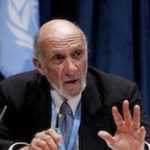
Richard Falk
Richard Falk is professor emeritus of international law at Princeton. He is the co-convener of SHAPE, Save Humanity and Planet Earth. He is the recipient of the UNESCO Peace Education Prize. He served as special rapporteur for the United Nations from 2008-2014 on the situation of human rights in the Palestinian territories. He is the author of numerous books including The Great Terror War, Unlocking the Middle East, Palestine: The Legitimacy of Hope and Chaos and Counterrevolution: After The Arab Spring. He is the co-author of Protecting Human Rights in Occupied Palestine.
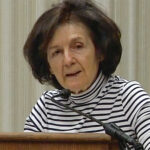
Irene Gendzier
Irene Gendzier is Professor Emerita at Boston University’s Departments of History and Political Science and a member of the African Studies Center. She’s currently a research affiliate at the Harvard Center for Middle East Studies. She is the author of several books including Dying to Forget: Oil, Power, Palestine, and the Foundations of U.S. Policy in the Middle East.
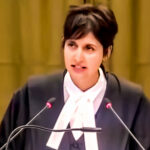
Adila Hassim
Adila Hassim is a South African lawyer, human rights activist, and senior counsel at Thulamela Chambers. She represented South Africa in the Gaza genocide case at the International Court of Justice in January 2024. She is also a co-founder of Corruption Watch, an anti-corruption organization, and a former director of litigation at Section 27, a public interest law center.

Max Blumenthal
Max Blumenthal is an award-winning journalist and editor-in-chief of The Grayzone. He is the author of Goliath: Life and Loathing in Greater Israel, The 51-Day War: Ruin and Resistance in Gaza and The Management of Savagery.
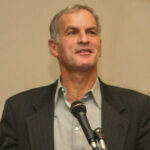
Norman Finkelstein
Norman Finkelstein is a distinguished independent scholar. He has long focused on the Israeli-Palestinian conflict. He is the author of many books, including Beyond Chutzpah, The Holocaust Industry, and Gaza: An Inquest into Its Martyrdom. He is the subject of the documentary film American Radical.

Chris Hedges
Chris Hedges is an award-winning independent journalist who has covered the Middle East for many years. Noam Chomsky says, “Chris Hedges has compiled a remarkable record of reporting and analysis. He has been an incomparable source of insight and understanding, both in his outstanding career as a courageous journalist and in his penetrating commentary on world events.” He is the host of The Chris Hedges Report and the author of many books. His latest is The Greatest Evil is War.
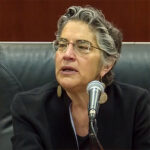
Phyllis Bennis
Phyllis Bennis, a Middle East expert, is a Fellow at the Institute for Policy Studies and directs its New Internationalism Project. She has appeared on PBS, NPR, BBC, and CBC. She is the author of many books including Before & After: U.S. Foreign Policy and the September 11th Crisis and Calling the Shots: How Washington Dominates Today’s UN. Her latest books are Understanding the Palestinian-Israeli Conflict and Challenging Empire.
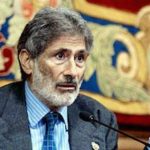
Edward Said
Edward Said, an internationally renowned Columbia University professor, practically invented the field of post-colonial studies. His great works Orientalism and Culture and Imperialism have been translated into many languages and are widely used in colleges and universities. The New York Times called him, “one of the most influential literary and cultural critics in the world.” As one of the few advocates for Palestinian rights in the U.S., he was the target of vilification, death threats and vandalism. The Economist said he “repudiated terrorism in all its forms and was a passionate, eloquent and persistent advocate for justice for the dispossessed Palestinians.” He was a trenchant critic not just of Israeli policies, but also of Arafat, the corrupt coterie around him and the despotic Arab regimes. He wrote: “While I have always advocated resistance to Zionist occupation, I have never argued for anything but peaceful coexistence between us and the Jews of Israel once Israel’s military repression and dispossession of Palestinians has stopped.” Though invited, he refused to attend the September 1993 White House signing ceremony of the Oslo agreement. He denounced it saying “What Israel has gotten is official Palestinian consent to continued occupation.” He felt strongly that intellectuals had a special responsibility to speak out against injustice, challenge power, confront hegemonic thinking, and provide alternatives. His friend Noam Chomsky said of him, “Said was one of the most remarkable and influential intellectuals of the last half-century. Much of his immense effort and talent was dedicated to overcoming the insularity, prejudice, self-righteousness, and apologetics that are among the pathologies of power and defending the rights of the victims.” His memoir Out of Place won the New Yorker Book of the Year Award. His two books of interviews with David Barsamian are The Pen & the Sword and Culture & Resistance. Edward Said died in New York in 2003.


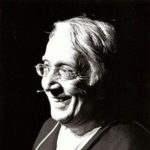

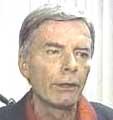
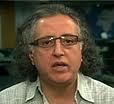
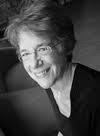
Reviews
There are no reviews yet.